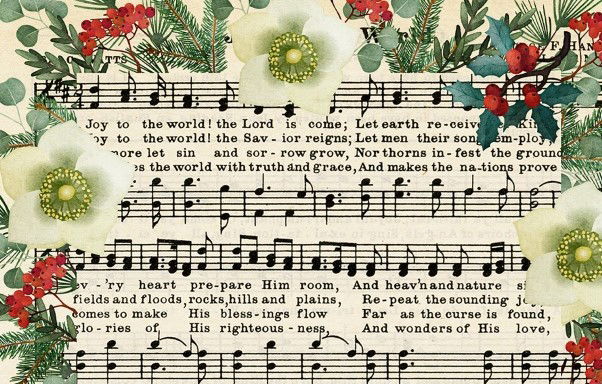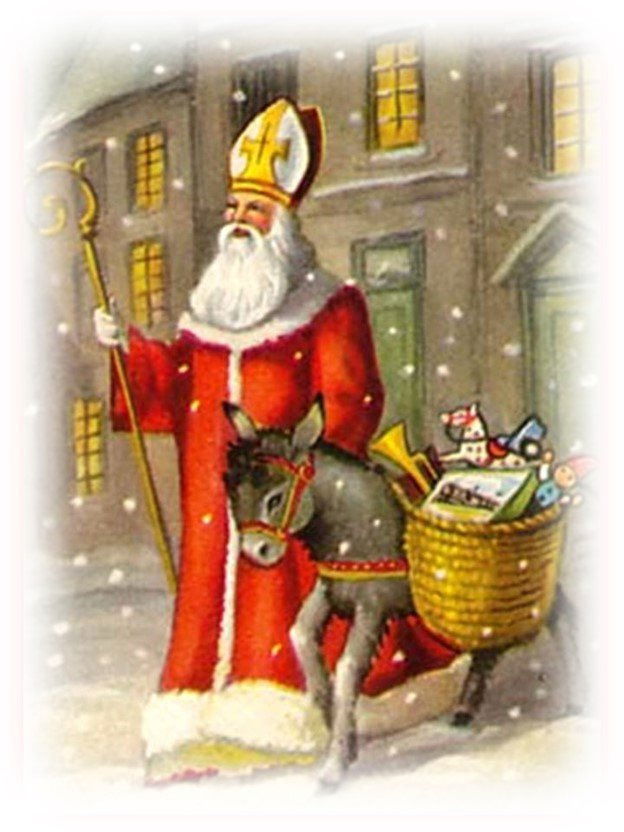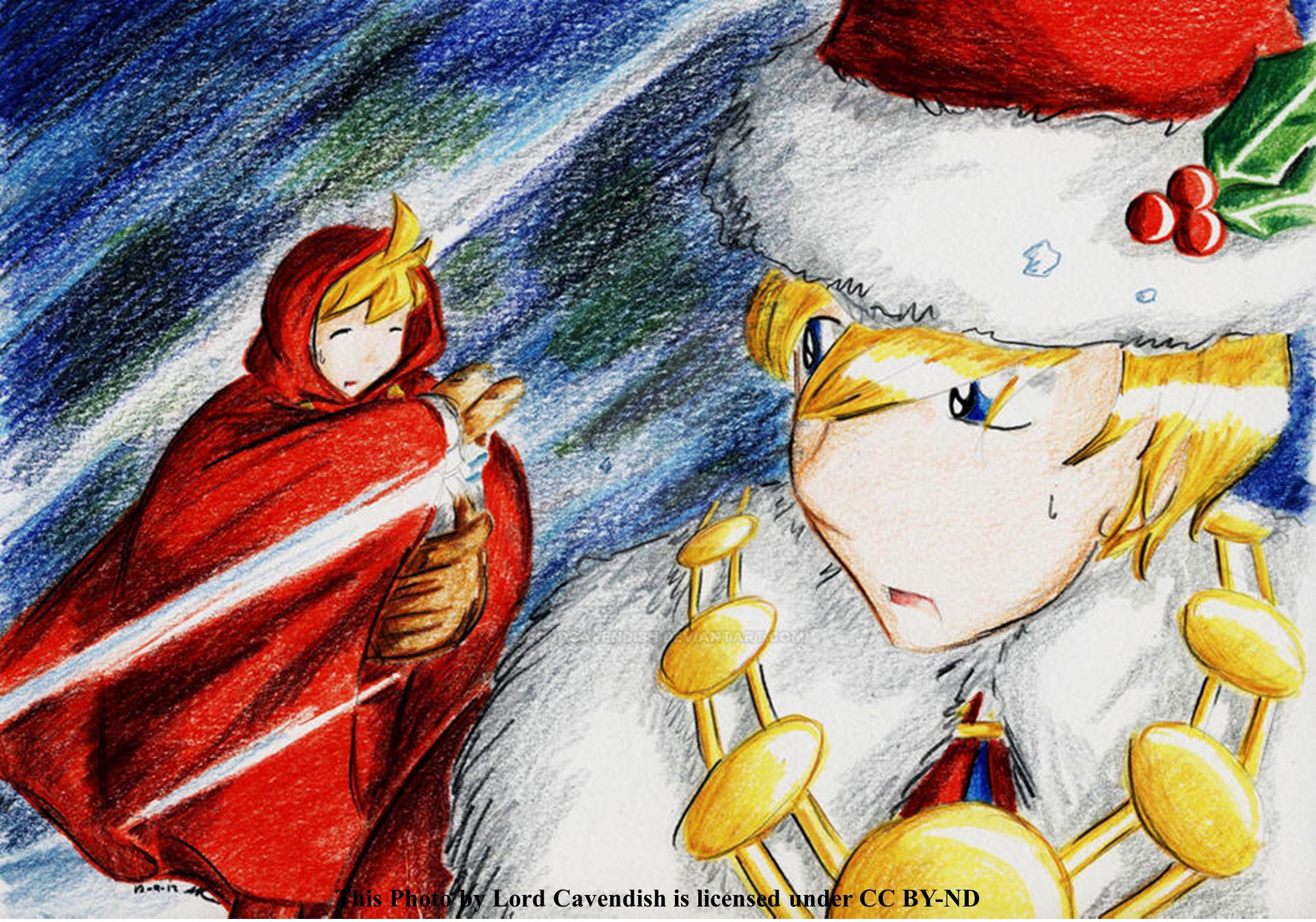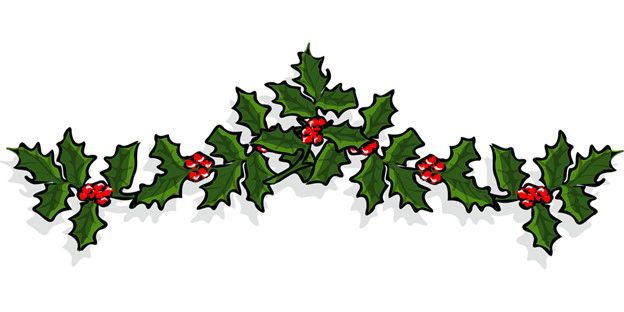The Music of Christmas

Christmas is a special time of year. Some celebrate the incarnation of God as the Son, Jesus. Some simply celebrate the celebration, enjoying all the symbols, like the tree, the holly and ivy, the candles and lights, and the music, without connecting them to anything specific.
Each of those symbols would take their own article, but the one that I want to discuss is the music. But, before I do that, let’s take a very brief look at the origin of the word “Christmas”. The term "Christmas" has its roots in the Old English word "Cristesmæsse," which, in modern English, is "Christ's Mass." The word combines "Christ", which means Anointed One and Messiah (or Savior) and "mæsse," which comes from the Latin word missa. When Catholic priests performed the mass in Latin, he would end it by saying Ite missa est, which translated into English means “Go, it is sent”. In modern usage, the “it” refers to the Church. In combination with the “Criste” in "Cristesmæsse", it lends itself more to mean that the Savior has been sent.
Most radio and TV stations these days broadcast Christmas songs and stories that have more, if not all, to do with the trappings of Christmas, than the meaning itself. There are those great spiritually profound songs like “Jingle Bells”, “Rudolph the Red-Nosed Reindeer” and of course “Last Christmas”. We won’t discuss the likes of them.
There have been a few attempts to combine the true meaning of Christmas with the idea of Santa Claus; some of them actually worked.
In 1947, Gene Autry sang a little ditty called “Here Comes Santa Claus”. I’m not sure if some of the lyrics were an attempt at mild evangelism or part of a description of what a child needed to do to be “good” for Santa. Part of the lyrics are: “So hang your stockings and say your prayers 'Cause Santa Claus comes tonight.” Later, he sings: “Here comes Santa Claus, Right down Santa Claus Lane.
He doesn't care if you're rich or poor; he loves you just the same. (Reminiscent of God Himself)
Santa Claus knows we're all God's children. That makes everything right.
So let’s give thanks to the Lord above 'cause Santa Claus comes tonight.”

In 1976, Randy Stonehill sang a wonderful song called “Christmas Song for All Year ‘Round” in which he mentions Saint Nicholas, not Santa Claus. He sang: “And I know that, if St. Nicholas was here, he would agree that Jesus gave the greatest gift of all to you and me. They led him to the slaughter on a hill called Calvary, And mankind was forgiven when they nailed him to the tree.”
Before pop tunes about Santa and Christmas trees and sleigh rides and wanting to be home for Christmas, the traditional carols rang true with the meaning of Christmas.
Songs like “The First Noël”, “Silent Night”, “It Came Upon a Midnight Clear” and others tell the story of the Nativity simply and clearly.
However, the haunting carol “O Come, O Come, Emmanuel” is more of an advent song, waiting for the coming Messiah. Its words could have been sung by a Jewish person who believed the prophecies about the coming Messiah.
“We Three Kings of Orient Are” tells the story of the visit by the wise men from “the east”. The Bible mentions three gifts, but says nothing about how many wise men there were. It also only says that they were from somewhere to the east of Israel. Another interesting part of the story is that, when they got to Jerusalem, supposing that the King would be born in the capital, they were informed by Herod’s counselors that the King was born in Bethlehem. But the Bible doesn’t say exactly that Bethlehem was where they found Jesus. Many Bible scholars believe that the Magi worshipped Jesus in Nazareth, based on a couple of clues found in Matthew, chapter 2. But, that’s for another article.
Not all Christmas carols are joyful recounts of the nativity. One, the Coventry Carol, written in the 16th century, tells the story of Herod’s command to kill all the boys under the age of two. The words, in part: Herod the king, in his raging,
Chargèd he hath this day
His men of might in his own sight
All young children to slay.

Another carol sung at Christmastime is “Good King Wenceslas”. (Being an old song with a folk origin, some of the words aren’t the same in different versions.) He is introduced in the song as celebrating the feast of St. Stephen, who was the first Christian martyr. His story is in the sixth and seventh chapters of the book of Acts. The celebration of St. Stephen’s Day is on December 26. The song itself is a story of the King and one of his page boys setting out to help a peasant. They collect food, drink and firewood for him and set out to deliver it. It’s loaded with symbolism. Here are the last two verses:
4 “Sire, the night is darker now, and the wind blows stronger,
Fails my heart, I know not how; I can go no longer.”
“Mark my footsteps, my good page, tread now in them boldly,
You shall find the winter’s rage freeze your blood less coldly.”
5 In his master’s steps he trod, where the snow lay dinted;
Heat was in the very sod which the saint had printed.
Therefore, Christian men, be sure, wealth or rank possessing,
You who now will bless the poor shall yourselves find blessing.
- Kings don’t deliver anything to anyone. Wenceslas does.
- When the page’s will to continue falters, the King encourages him by telling him to walk in his footsteps.
- The song calls the King “master”. Walking in Jesus’ footsteps will encourage and enable us.
- The last line does not refer to Karma. Karma is supposedly an automatic response to a person’s actions. It refers to the living God rewarding those who care for others. See Matthew 6:1-4, Revelation 22:12. Those are a good start.

Some carols have been plundered from the Egyptians, a reference to the children of Israel receiving gold, silver and other precious things from the Egyptians before the exodus to the Promised Land. The Israelites later used the things that had been used to worship false gods to make the things for the Tabernacle to worship the one true God. One of the carols that fits that category is “The Holly and the Ivy” (turn off the Closed Captioning for a better view). So, the carol has taken the pagan meanings and consecrated them for Christian meaning. Here are some examples of pagan uses of holly and ivy.
- Ancient Europeans used holly when they celebrated the winter solstice, which occurs in late December in the northern hemisphere; it is the longest night of the year. Ancient Romans used holly during Saturnalia, a festival dedicated to their god Saturn.
- Ivy has been used during the winter since very early times. Ivy, like some hollies, stays green throughout the year, leading some ancient people to believe it had magical properties, and symbolized eternal life, rebirth and the spring season.
Now, here is how the carol has re-purposed those meanings (using selected verses):
1 The holly and the ivy when they are both full grown, of all the trees that are in the wood, the holly bears the crown.
3 The holly bears a berry, as red as any blood (refers to the blood shed by Jesus on the cross), and Mary bore sweet Jesus Christ to do poor sinners good.
4 The holly bears a prickle, as sharp as any thorn (refers to the crown of thorns worn by Jesus.)
5 The holly bears a bark, as bitter as any gall (refers to the pain-deadening myrrh that was mixed with the wine that the Roman soldiers offered Jesus when He was on the cross. He refused the drugs, bravely facing the agony of the cross for our sakes.)
The real music of Christmas, of course, is recorded in the Bible, in its recounting of the first Christmas. Many are familiar with the angels’ song after their announcement to the shepherds of the arrival of the messiah. But, the first song recorded was when Mary went to visit her cousin Elizabeth, who was also pregnant with John, who would baptize many. This song is often called “The Song of Mary” or “The Magnificat” (which means “to magnify” because Mary was magnifying, or glorifying, God in it). The story is found in Luke 1. Here is part of it:
40 …(Mary) entered Zechariah’s home and greeted Elizabeth. 41 When Elizabeth heard Mary’s greeting, the baby leaped in her womb, and Elizabeth was filled with the Holy Spirit. 42 In a loud voice she exclaimed: “Blessed are you among women, and blessed is the child you will bear! 43 But why am I so favored, that the mother of my Lord should come to me? 44 As soon as the sound of your greeting reached my ears, the baby in my womb leaped for joy. 45 Blessed is she who has believed that the Lord would fulfill his promises to her!”
From that scripture, we learn that the first person, besides Mary and Joseph, who knew that Mary was carrying the Savior was the baby that Elizabeth was carrying. Then, Mary goes on to glorify God not only for the privilege of carrying Messiah, but of all the goo He had done and would do.
The most well-known Christmas song in the Bible is the one the angels sang to the shepherds. The relatively new carol “Angels We Have Heard on High” tells the story wonderfully. Before that, Handel wrote the Oratorio “Messiah” which contains his musical version of the angels’ song, “Glory to God”. This link is from a newer rendition of Handel’s original work and, in addition to traditional orchestral instruments, includes drums, electronic keyboard and guitars, acoustic and electric.
Music was, and is, thoroughly entwined in the story of Christmas and its celebration. May the God of love, joy, peace and salvation sing His glorious song in your heart and life this Christmas and always.
Salt Cellar Creations has a new Christmas song called “Celebrate Jesus, Celebrate Life” and is available for sale, the recording and the sheet music. Check it out HERE.
SCC can also compose an original piece for you or do a custom arrangement for you. There are two ways that this can be done; one is much more affordable than the other. And SCC is always looking for ideas of pieces to arrange or suggestions for original pieces.
We have sold music not only in the US but in Canada, the United Kingdom, France, Australia, and New Zealand. Please visit the WEBSITE or CONTACT US to let us know what we can do for you!